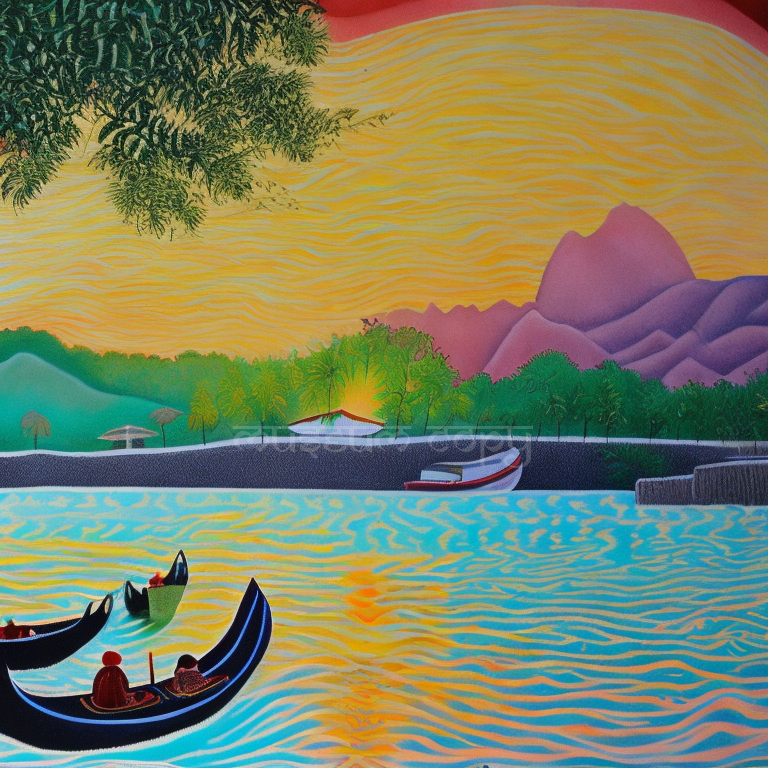Profile: Rabindranath Tagore
•

Rabindranath Tagore, often referred to as "Gurudev," was a polymath, poet, philosopher, musician, and artist who left an indelible mark on Indian and global culture. Born on May 7, 1861, in Kolkata, India, Tagore was a creative genius who reshaped literature, music, and art, and became the first non-European Nobel laureate in Literature. His contributions spanned various disciplines, making him an iconic figure and a leading voice in the cultural and intellectual renaissance of India.
Tagore's poetic brilliance manifested in his extensive body of work, encompassing poetry, songs, plays, essays, and novels. His poetry, written in Bengali, carried profound messages of love, nature, spirituality, and humanism. Tagore's poetry had a lyrical quality that transcended linguistic barriers, and his words resonated with people across cultures and continents. His most famous work, "Gitanjali" (Song Offerings), garnered international acclaim and earned him the Nobel Prize in Literature in 1913.
In addition to his poetic genius, Tagore was also a skilled composer and musician. He composed over 2,000 songs, known as Rabindra Sangeet, which celebrated the essence of Indian classical music while incorporating his unique melodic and lyrical expressions. His songs became anthems of the Indian independence movement and continue to be beloved and performed today.
Tagore's artistic endeavors extended beyond literature and music. He was also an accomplished painter and visual artist, experimenting with various artistic styles and techniques. His paintings, characterized by their simplicity and elegance, often depicted nature, human emotions, and mythological themes. Though not as widely recognized for his visual art as his literary and musical works, Tagore's paintings revealed his profound understanding of aesthetics and served as a visual expression of his poetic sensibilities.
Beyond his creative pursuits, Tagore was a visionary thinker and philosopher. He emphasized the importance of education, both intellectual and moral, as a means of fostering individual growth and societal progress. In line with his beliefs, he established Santiniketan, an experimental educational institution that blended Eastern and Western educational philosophies, promoting an environment of holistic learning and cultural exchange.
Tagore's contributions to literature, music, art, and philosophy had a far-reaching impact. His ideas and works inspired generations of artists, thinkers, and freedom fighters, transcending national and cultural boundaries. Tagore's international recognition elevated Indian literature and culture on the global stage, fostering a deeper appreciation for the richness and diversity of Indian artistic traditions.
Rabindranath Tagore's legacy is celebrated in India and around the world. His profound insights into the human condition, his celebration of nature's beauty, and his calls for universal harmony and peace continue to resonate with audiences today. Tagore's creative genius, intellectual depth, and his relentless pursuit of truth and beauty make him an enduring symbol of artistic excellence and a beacon of inspiration for generations to come.
Tagore's poetic brilliance manifested in his extensive body of work, encompassing poetry, songs, plays, essays, and novels. His poetry, written in Bengali, carried profound messages of love, nature, spirituality, and humanism. Tagore's poetry had a lyrical quality that transcended linguistic barriers, and his words resonated with people across cultures and continents. His most famous work, "Gitanjali" (Song Offerings), garnered international acclaim and earned him the Nobel Prize in Literature in 1913.
In addition to his poetic genius, Tagore was also a skilled composer and musician. He composed over 2,000 songs, known as Rabindra Sangeet, which celebrated the essence of Indian classical music while incorporating his unique melodic and lyrical expressions. His songs became anthems of the Indian independence movement and continue to be beloved and performed today.
Tagore's artistic endeavors extended beyond literature and music. He was also an accomplished painter and visual artist, experimenting with various artistic styles and techniques. His paintings, characterized by their simplicity and elegance, often depicted nature, human emotions, and mythological themes. Though not as widely recognized for his visual art as his literary and musical works, Tagore's paintings revealed his profound understanding of aesthetics and served as a visual expression of his poetic sensibilities.
Beyond his creative pursuits, Tagore was a visionary thinker and philosopher. He emphasized the importance of education, both intellectual and moral, as a means of fostering individual growth and societal progress. In line with his beliefs, he established Santiniketan, an experimental educational institution that blended Eastern and Western educational philosophies, promoting an environment of holistic learning and cultural exchange.
Tagore's contributions to literature, music, art, and philosophy had a far-reaching impact. His ideas and works inspired generations of artists, thinkers, and freedom fighters, transcending national and cultural boundaries. Tagore's international recognition elevated Indian literature and culture on the global stage, fostering a deeper appreciation for the richness and diversity of Indian artistic traditions.
Rabindranath Tagore's legacy is celebrated in India and around the world. His profound insights into the human condition, his celebration of nature's beauty, and his calls for universal harmony and peace continue to resonate with audiences today. Tagore's creative genius, intellectual depth, and his relentless pursuit of truth and beauty make him an enduring symbol of artistic excellence and a beacon of inspiration for generations to come.